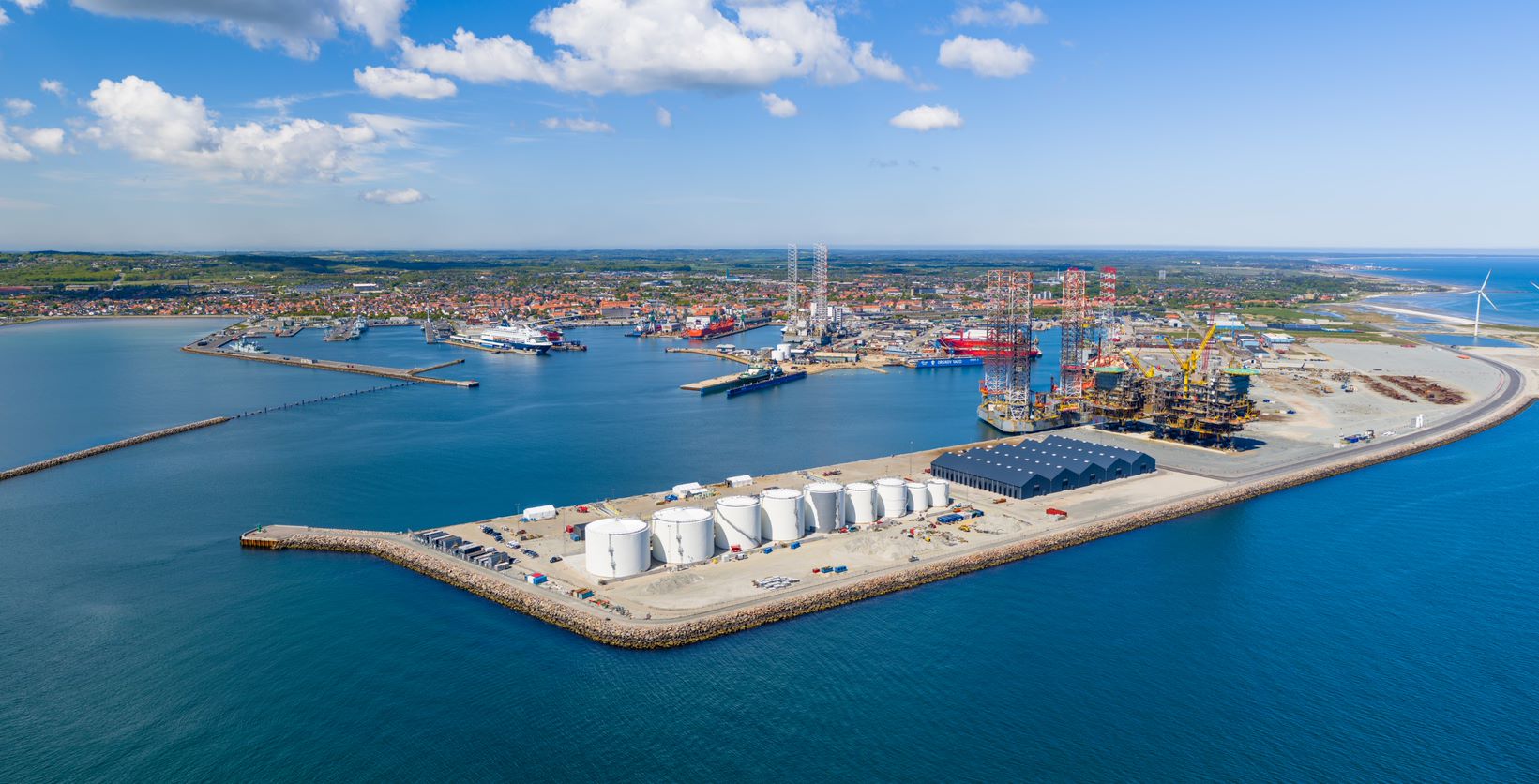SMV-regeringen skal sikre dansk kritisk infrastruktur

Danske Havnes direktør Tine Kirk skrev denne kronik i dagbladet Børsen den 29. december.
Den nye regering skal have modet til at prioritere den nødvendige udbygning af dansk infrastruktur og i modsætning til Tyskland, der har solgt del af Hamborg Havn til kineserne, holde det på danske hænder. Positivt, at investeringer i havne er med i regeringsgrundlaget.
Det kan lyde som noget i småtingsafdelingen, men det er det ikke.
Velfungerende, opdateret og sikker dansk infrastruktur er afgørende for vores forsyningssikkerhed på både fødevarer og energi, uafhængighed og nationale sikkerhed.
Christiansborg ved det godt. Det gik stærkt at sikre nationalt finansieret uddybning af Esbjerg Havn, der som NATO-havn er afgørende for forsvarsalliancens indsats for sikkerhed i Baltikum og ved grænserne til bl.a. Polen og Rusland.
Flere andre danske havne er involverede i udskibning af mandskab og materiel for NATO og det danske forsvar.
Samtidig er erhvervshavnene i Danmark nøglepunkter for den grønne omstilling og opfyldelsen af de politisk vedtagne, ambitiøse klimamål.
Esbjerg Havn er Europas største havn for udskibning af havvindmølleprojekter og involveret i over halvdelen af de europæiske havvindprojekter, og Odense Havn er Europas førende produktionshavn på offshore vind området.
Odense og Aalborg Havne huser også verdens førende testcentre for vindmølle-naceller og havvindmøllevinger, LORC og Blaest.
En række havne fra Rønne Havn i Østersøen over Aabenraa Havn i Sønderjylland og ADP i Fredericia til Esbjerg i vest og Hanstholm og Hirtshals i Nordjylland er dybt involverede og langt fremme i CO2-fangst og udviklingen og distributionen af grønne brændsler, ikke mindst til søfarten.
Det fylder blot ikke meget i den politiske debat.
Man må dog lade statsministeren, at hun har prioriteret besøg på danske havne, også i valgkampen, og hun udviser både viden om og forståelse for havnenes betydning for danskernes hverdag, dansk erhvervsliv, arbejdspladser og udenrigshandelen.
I P1 sagde Mette Frederiksen umiddelbart efter sin åbningstale i Folketinget 4. oktober, at vi i Vesteuropa har været naive og vi ikke fremover skal sælge national, kritisk infrastruktur til lande, vi ikke deler sikkerhedspolitiske interesser med.
Jeg kan ikke være mere enig!
Desværre solgte Tyskland kort efter en, ganske vist mindre, del af Hamborg Havn til Kina, der også ejer Athens havn i Piræus.
Derfor er det glædeligt, at regeringen vil sikre rammer for kommercielle investeringer i de danske erhvervshavne.
Flere trusler
Også på andre områder er der konkrete opgaver, regeringen skal adressere.
Ikke mindst en helt nødvendig fasttrack-ordning med myndighedsgodkendelser, så papirgange ikke tager år eller tiår og unødigt forsinker alt fra uddybning af sejlrender over havneudvidelser til havvindmølleparker og grøn omstilling.
Det er sagt før, men det nytter ikke noget, hvis vindmølleparker fremover kan godkendes efter 1 -2 års sagsbehandling, hvis det tager 3 – 4 år at godkende uddybning af en sejlrende, som er en nødvendig forudsætning for udskibning af havvindmøller. Og endnu længere tid at godkende nødvendige udbygninger af havneinfrastrukturen på land.
En fasttrack ordning og dermed hurtigere myndighedsgodkendelser af den infrastruktur, der er nødvendig for den grønne omstilling kræver mod. Også politisk mod. Til at sige, at vi undersøger tingene tilstrækkeligt i Danmark og vi tilfører området de nødvendige ressourcer. Havnene er helt rede til selv at betale for hurtigere sagsbehandling.
Det er vigtigt med en højere grad af statslig medfinansiering på havneområdet. I Infrastrukturplan 2035 blev der afsat 50 mio. kr. til havnene. Ud af 160 milliarder kroner. Jeg ved godt, der også blev afsat midler til adgangsveje på landsiden, men sejlrender og havnearealer er altså også infrastruktur. Det anerkendes i vores nabolande, hvor der nogle steder helt lovligt ydes statsstøtte til nye sejlrender og ny havneinfrastruktur, som skal sikre et godt afsæt for den grønne omstilling. Mere havvind og nye grønne brændstoffer.
Havnene er ejet af kommunerne, som i mange tilfælde garanterer for havnenes lånoptagning. En ny regering kunne også genbesøge lånevilkårene for havnene. Det er ikke rimeligt, at enkeltkommuner alene skal bære den finansielle risiko ved nødvendige infrastrukturinvesteringer til grøn omstilling – blot fordi de ejer en havn af national interesse.
Jeg håber inderligt, at vores nye regering har modet til at prioritere den nødvendige udbygning og sikring af vores kritiske infrastruktur. Det er ikke gratis. Men prisen for ikke at gøre det er højere.
